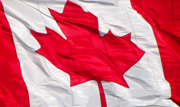An internet search indicates that freedom is generally considered to be “the ability to determine the course of your daily schedule and overall life direction”. On simpleliberty.org, Darrell Anderson notes, however, that there is a distinction between freedom and liberty. He says that “The concept of freedom implies unrestricted movement and actions regardless of boundaries, but the concept of liberty implies restrictions on actions because of boundaries”. This distinction leads to one of the fundamental purposes of government in a democracy, i.e. to create acceptable boundaries in the form of laws and regulations.
But when do we have enough laws and regulations? Are we already there? After all, we complain when governments haven’t been “active”, i.e. when they haven’t passed many laws and regulations in a year!
In a 2011 edition of The New Individualist: Challenging Both Left and Right, Bradley Doucet wrote that, today, “much more work (needs) to be done disseminating and explicating the idea of liberty… Too many people now look to government to solve all problems…. After a century of creeping welfare-statism, too many people have forsaken such virtues as prudence, self-discipline, and independence, virtues that underpin the working of a free society”. However, he says that we should not despair because “in the great sweep of human history, the notion that freedom for all is both right and good is a relatively novel idea.”
We’re fortunate to live in Canada. Our country has successfully embraced the notion of “freedom for all”. The Fraser Institute (Canada) ranks Canada #4 in the world in human freedom based on the Worldwide Index of Human Freedom it developed with the Cato Institute (U.S.). Furthermore, the Heritage Foundation (U.S.) ranks Canada #6 in the world in terms of economic freedom.
Everyday Canadians need to do their bit to ensure that “freedom for all” continues to flourish here. How? By voting in government leaders and representatives who value freedom over regulation, and who want to reduce the size of government (and our taxes) rather than increase them. In other words, by voting in Conservatives rather than the other parties, all of which espouse “tax and spend” policies that inherently restrict our individual freedom.

